Expert Committee on Adhesion Testing for TDS
The amount of drug delivered into and through the patient’s skin is dependent, in part, on the surface area of the Transdermal or Topical Delivery System (collectively, TDS) dosed upon the skin. Under ideal conditions, the entire contact surface area of a TDS should remain consistently and uniformly adhered to the patient’s skin throughout the duration of wear. When a TDS loses its adherence during wear, the amount of drug delivered to the patient may be reduced. Thus, it is important to have tests that can monitor the adhesive properties and adhesion performance of TDS products. However, current laboratory (in vitro) tests that characterize aspects of TDS adhesive properties have limitations that make it challenging to correlate the test results with the in vivo adhesion performance of TDS. Thus, when differences are observed, it is challenging to know whether or not the difference will impact the clinical performance of the product.
The Center for Research on Complex Generics (CRCG) has formed an Expert Committee (EC) on Adhesion Testing for TDS, comprised of experts who can systematically consider the influence on adhesive properties and adhesion performance of intrinsic TDS attributes such as size and shape, as well as extrinsic factors that can impact TDS adhesion including temperature, torsion/flexion, time and other factors.
The EC would work collaboratively with the CRCG and the FDA to consider the design of research that could develop improved in vitro test methods to evaluate the adhesive properties and adhesion performance of TDS. Once the research is awarded to a qualified research group, the EC would continue to participate in routine progress meetings to discuss and advise on the ongoing research and development work.
Co-Director of CRCG, Larry and Ann Hsu Professor of Pharmacy, Chair, Department of Pharmaceutical Sciences, Biointerfaces, College of Pharmacy, University of Michigan
Dr. Anna Schwendeman is a Larry and Ann Hsu Collegiate Professor and Chair of the Department of Pharmaceutical Sciences at the University of Michigan. Her research focus is on optimization of high-density lipoprotein (HDL) nanoparticles for treatment of atherosclerosis, sepsis, and drug delivery purposes. In 2016, she co-founded a company EVOQ Therapeutics (www.evoqtherapeutics.com) focused on the use of HDL Nanodiscs for delivery of personalized neoantigen cancer vaccines. Dr. Schwendeman received her B.S. from Moscow Institute of Physics and Technology and Ph.D. in Pharmaceutics from The Ohio State University. Prior to starting her academic career in 2012, Dr. Schwendeman spent 12 years in the pharmaceutical industry at Cerenis Therapeutics, Pfizer, and Esperion Therapeutics. She was involved in discovery and translation HDL drugs to clinical trials. She successfully submitted FDA INDs for seven different products including nanoparticles, liposome, recombinant proteins, peptides, and small molecules. Her laboratory’s research in regulatory sciences is focused on analytical characterization of liposomes, polymer microspheres, peptides, and biosimilar products. She is co-Director of FDA sponsored Center for Research in Complex Generics (http://www.complexgenerics.org). Dr. Schwendeman is an Associate Editor for Nanomedicine NBM and Eur. J. Pharm and Biopharm.

Co-Director of CRCG, Professor of Pharmaceutical Sciences, Ralph F. Shangraw Noxell Endowed Professor in Industrial Pharmacy and Pharmaceutics, University of Maryland
Dr. James E. Polli is Professor of Pharmaceutical Sciences and Ralph F. Shangraw/Noxell Endowed Professor in Industrial Pharmacy and Pharmaceutics at University of Maryland. His research interest is oral drug absorption and formulation, involving laboratory and clinical research. He has served as advisor to 25 Ph.D. graduates. He is the 14th recipient of the American Pharmacists Association Takeru Higuchi Research Prize. Dr. Polli is co-Director of the Center for Research on Complex Generics, an FDA-funded collaborative agreement with the Agency. He is Director of the online M.S. in Regulatory Science program (www.pharmacy.umaryland.edu/regulatoryscience).
Associate Director, CRCG, Department of Pharmaceutical Sciences, University of Michigan, College of Pharmacy
Dr. Visha Krishnan has over 15+ years of experience in life science research, technology commercialization, innovation strategy, R&D prioritization, pre-clinical product development, and project management. Prior to joining the Center for Research on Complex Generics (CRCG), she was the CEO of AZ Solutions, LLC, a startup company which developed antimicrobial products. She was also a Senior Life Science Consultant at Foresight Science and Technology, an Entrepreneur-in-Residence at Spartan Innovations (Michigan State University Foundation) and the Director of Market Discovery at The SearchLite where she assisted several early/mid-stage companies, investors, incubators, and universities with their technology commercialization and product development strategies. While on the licensing team at Henry Ford Health System Innovations and at University of Michigan, she managed an extensive portfolio of inventions and two life science innovation funds worth several millions and a diverse portfolio of pre-clinical innovation projects with primary focus on drug development. These projects led to several million in follow-on funding and several inventions, patents, and industry partnerships. Additionally, she managed their Corporation Innovation projects and business development efforts securing millions in funding. Visha holds a B.Tech in Industrial Biotechnology from Anna University, India and a Ph.D. in Chemistry (Chemical Biology) and postdoctoral training from the University of Michigan. She manages the U.S. FDA funded CRCG focused on increasing access to safe and effective generic drugs and is also a Consultant for startup companies developing new drug products.
Events Coordinator, Center for Research on Complex Generics
Ms. Dana Hammell is the Events Coordinator for the Center for Research on Complex Generics (CRCG). Additionally, she is the Laboratory Manager for Dr. Audra Stinchcomb’s laboratory at the University of Maryland, Baltimore and assists with the Center of Excellence in Regulatory Science and Innovation (M-CERSI) program. She has worked for Dr. Stinchcomb for 20+ years at the University of Kentucky, AllTranz, Inc., F6 Pharma, Inc., and University of Maryland, Baltimore conducting in vitro topical/transdermal permeation studies and animal studies, and assisting with topical/transdermal clinical research studies. Prior to joining Dr. Stinchcomb’s laboratory at the University of Kentucky, she conducted calf milk replacer research at Merrick’s and Land O’ Lakes Inc. She completed her B.S. in Dairy Science from Iowa State University and M.S. in Dairy Science from South Dakota State University.
Associate Director for Science and Chief Scientific Advisor, ORS, OGD, CDER, FDA
Dr. Sam Raney is the Associate Director for Science and Chief Scientific Advisor in the FDA’s Office of Research and Standards and Office of Generic Drugs, where he oversees the research portfolio of FDA’s generic drug research program. He has over 30 years of experience in pharmaceutical drug development, specializing in topical and transdermal products, and producing numerous research manuscripts, review articles, book chapters, and patents. He has been a researcher and adjunct professor within academia, a principal or sub investigator on over 400 pharmaceutical product studies, has held senior management roles in industry, serves on multiple expert committees and panels for the U.S. Pharmacopeia, and is frequently invited to speak at scientific meetings around the world. Dr. Raney holds a Bachelor’s Degree in Molecular Biophysics & Biochemistry from Yale University, and a Ph.D. in Biochemistry & Molecular Biology from the University of British Columbia in Canada.
Lead Pharmacologist, ORS, OGD, CDER, FDA
Dr. Priyanka Ghosh is a lead pharmacologist within the Division of Therapeutic Performance, ORS, OGD. Her areas of expertise include products in the topical and transdermal drug delivery area. In her current role, Dr. Ghosh leads regulatory science research initiatives related to topical, transdermal, and transmucosal drug products, under the GDUFA regulatory science program. Dr. Ghosh also leads the development of general and product-specific guidances, review strategies for industry meeting requests and citizen petitions, and is the co-chair of the Bioequivalence Standards for Topicals Committee within OGD. Prior to joining FDA, Dr. Ghosh completed her Bachelor’s degree in Biotechnology from West Bengal University of Technology (India) and a Ph.D. in Pharmaceutics and Drug Design from the University of Kentucky.
Director, Engineering, IB, WEAC, OMPSLO, ORS, ORA, FDA
Chemist, DTP I, ORS, OGD, CDER, FDA
Dr. Ying Jiang is currently working as a Chemist in the Dermal, Transdermal and Transmucosal Products Team in Division of Therapeutic Performance I (DTP I), Office of Research and Standards (ORS), Office of Generic Drugs (OGD) in FDA. She joined the team as an ORISE postdoctoral fellow in 2019 and has been working there since. In her current role, Dr. Jiang addresses specific questions and develops guidances related to therapeutic equivalence demonstration to support development of generic products in her area of expertise. She also engages in regulatory science research initiatives related to topical and transdermal products. Dr. Jiang obtained her Ph.D. in Pharmaceutics Sciences (topical and transdermal delivery) from College of Pharmacy at Mercer University.

Director, DTP I, ORS, OGD, CDER, FDA
Dr. Markham C. Luke serves as FDA Supervisory Physician (Dermatology) and Director of the Division of Therapeutic Performance I (DTP I) in the Office of Research and Standards, Office of Generic Drugs at FDA. DTP I is responsible for facilitating pre-application development of generic drugs by conducting and promoting regulatory science research to establish standards to ensure therapeutic equivalence of new generic drug products. Markham has an M.D. and a Ph.D. in Pharmacology from Johns Hopkins University and completed his dermatology residency and fellowship at Washington University, St. Louis, MO and the National Institutes of Health, Bethesda, MD. He is an Associate Professor at the Uniformed Services University of the Health Sciences, Bethesda, MD with research interests in dermatopharmacology, clinical pharmacology, clinical study design and endpoints assessment (including patient-reported outcomes) for medical, surgical, and aesthetic products. He has been at FDA since 1998 serving various roles, including as the Lead Medical Officer for dermatology drugs, Chief Medical Officer and Deputy Director for the Office of Device Evaluation in the Center for Devices and Radiologic Health, and as Acting Director for cosmetics in the Center for Food Safety and Applied Nutrition.

Senior Pharmacologist, DTP I, ORS, OGD, CDER, FDA
Dr. Tannaz Ramezanli is a senior pharmacologist within the Office of Research and Standard (ORS) at the Office of Generic Drugs (OGD). She specializes in topical and transdermal products. She is a senior reviewer for the development of product-specific bioequivalence guidance, responding to controlled correspondences, citizen petitions, and pre-ANDA meeting packages. She leads several regulatory science research initiatives related to the development of bioequivalence standards for complex topical drug products through FDA-funded collaborations with research institutions around the world. Tannaz received her Ph.D. in Pharmaceutical Sciences from Rutgers University and her Pharm.D. from Tehran University of Medical Sciences.
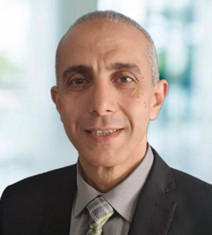
Senior Pharmacologist Staff, OTR, OPQ, CDER, FDA
Dr. Ahmed Zidan is a senior pharmacologist staff at the Division of Product Quality Research in the Office of Testing and Research of CDER. Ahmed leads the topical and transdermal drug products laboratories of DPQR and provides hands-on training to reviewers on various topics, including transdermal delivery systems, in vitro release, permeation testing of pharmaceuticals, and preformulation consideration for the development of topical and oral drug products. Dr. Zidan also leads OTR research efforts supporting the development of general and product-specific guidance documents, review strategies for pre-ANDAs and ANDAs, and citizen petitions for topical drug products. Ahmed is the government liaison Expert of the USP committee of complex excipients. His research activities and collaborations produced various publications and book chapters. Ahmed completed his Bachelor’s and Master’s degrees in Pharmaceutical Sciences at Zagazig University and his Doctoral degree in Drug Delivery at Howard University.
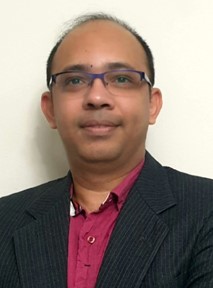
Project Manager, Eurofins Scientific Inc.
Mr. Ketan Chovatiya has recently joined Eurofins Scientific Inc. in Lancaster, PA, working as a Project Manager. He has clinical R&D expertise with over twelve years of scientific experience in the global pharmaceutical industry. His experience includes the clinical development of various phases of complex generic and novel molecules. Mr. Chovatiya was also involved in the analytical development of some new complex IND products. He played a crucial role in the development of in vitro/in vivo clinical development strategies and in handling operations of clinical CRO and sites globally. He had much exposure to monitoring clinical trials of complex pharmaceutical dosage forms. He was also responsible for the regulatory compliance of the clinical trials. As Project Manager, Mr. Chovatiya focuses on the handling of multi-centric clinical trials with different geographical global centers, working collaboratively with study centers and departments across the U.S. and other regions. He was a part of developing different approaches and design of clinical trials for irritation and sensitization studies for topical and transdermal products where industry met the regulatory compliances.
Previously, he worked in pharmaceutical industries and CROs like Cliantha Research Ltd. (North America), Zydus Life Sciences Ltd. (India), and Hercon Pharmaceuticals LLC. (USA) with various scientific positions. Overall, his experiences have expanded from product development, analytical and clinical development, bioequivalence, clinical quality and regulatory compliance for novel molecules. During his academic career, he received his M.S. in Pharmaceuticals from the National Institute of Pharmaceutical Education, research. He specialized in Pharmacy Practice and Clinical Research at the National Institute of Pharmaceutical Education and Research (NIPER-Mohali), India.
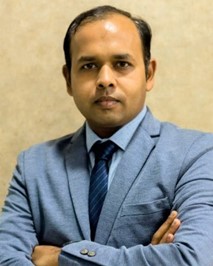
Co-Founder and Chief Scientific Officer, Cutyx Research LLP, India
Dr. Pradeep Dabhi is a Co-Founder of Cutyx Research LLP, Ahmedabad, India, serving as a Chief Scientific Officer. Prior to his role at Cutyx, Pradeep held senior positions at reputable organizations, namely Encube Ethicals and Zydus Life Sciences, where he led teams of skilled scientists focused on the analytical development of complex dosage forms, particularly Transdermal patches, intravaginal rings (IVR) and topical products. Dr. Dabni also served as a Consultant to ICURE Pharmaceutical Inc., South Korea, where he also provided guidance for transdermal systems development as per FDA requirements.
With over 14 years of experience in analytical development across the spectrum of complex dosage forms, Pradeep has played a pivotal role in numerous research and development endeavors, including ANDAs and NDA 505 (b)(2) projects related to topical and transdermal drug delivery systems. Pradeep has a strong background in analytical method development, qualification, validation, and transfer, as well as in vitro release and skin permeation testing (IVRT/IVPT) along with statistical evaluations, extractables and leachables (E&L), and elemental impurities. In addition, he has extensive regulatory CMC knowledge, including early and late-stage submissions and responses to regulatory deficiencies.
Pradeep holds a Doctorate in Pharmaceutical Sciences and a Master’s degree, M.S.(Pharm.) from NIPER-Ahmedabad, India.
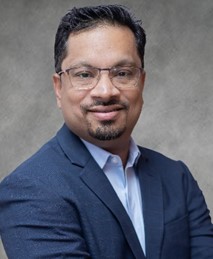
General Manager of Research and Development, Encube Ethicals Private Limited, India
Mr. Ashok Dewangan is a seasoned professional with over 17 plus years of experience specializing in the development of transdermal, topical, oral thin film, and other complex generics products for regulated markets. Currently serving as the General Manager of Research and Development at Encube Ethicals Private Limited, India, Ashok brings a wealth of expertise to the pharmaceutical industry.
Ashok focuses on the development of transdermal and topical products, demonstrating his commitment to advancing pharmaceutical technologies. His responsibilities encompass various aspects of transdermal, topical, and OTF development, including technology transfer, project management, and product launch and regulatory correspondence. In the past, Ashok was also actively involved in collaborating with Contract Manufacturing Organizations (CMOs) for the manufacturing of complex products. Earlier has worked with Zydus group, India and Alkem Labs, India for transdermal, topicals and OTF products.
Ashok has extensive knowledge spans from basic to advanced, right from adhesive and excipient selection, in vitro and in vivo performance evaluation, process scaling up, and troubleshooting of transdermal and thin film products. He has successfully contributed to the commercial launch of transdermal products, showcasing his proficiency in the entire product development life cycle.
Furthermore, Ashok has a notable background in discussions with the FDA including but not limited to meetings, correspondence, and responding to queries related to transdermal systems, topical, oral film, and other complex generics like vaginal rings. His dedication to maintaining high-quality standards and navigating regulatory processes has been a hallmark of his career.
With a track record of accomplishments and a comprehensive understanding of complex product development, Ashok stands out as a leader in the field, contributing significantly to the advancement of oral film, transdermal and topical drug, and other complex drug delivery systems.
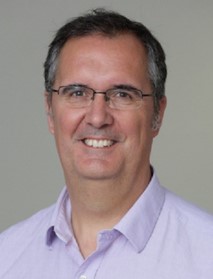
Acting Branch Chief, Early Translational Branch, Director, 3D Tissue Bioprinting Laboratory National Center, National Institute of Health (NIH)
Dr. Marc Ferrer is currently the Acting Branch Chief of the Early Translational Branch and Director of the 3D Tissue Bioprinting Laboratory at the National Center for Advancing Translational Sciences (NCATS) at the NIH. He graduated with a B.Sc. degree in Organic Chemistry from the University of Barcelona, Spain, in 1989, and received his Ph.D. degree in Biological Chemistry from the University of Minnesota, in 1994. He was a postdoctoral fellow at Harvard University from 1995-1999, where he used structure-based chemical approaches for the development of anti-HIV small molecules. He joined the Department of Automated Biotechnology at the Merck Research Laboratories in 1999, where he became Director of Assay Development and High Throughput Screening. In 2010, he joined the NIH Chemical Genomics Center working on the discovery of small molecule probes to study protein function. In the last six years, he has led the implementation of the 3D Tissue Bioprinting Laboratory, a multidisciplinary group with the goal of creating and using 3D bioengineered tissues for disease modeling and as predictive assay platforms for drug discovery and development. Dr. Ferrer has co-authored more than 120 peer-reviewed scientific publications.
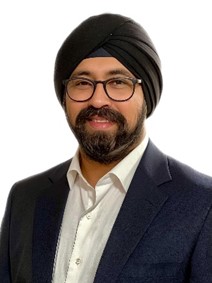
Founder, CEO, CSO, Anziva Pharmaceuticals
Dr. Simerdeep Singh Gupta is a pharmaceutical scientist and entrepreneur, serving as the Founder and CEO of Anziva Pharmaceuticals. He holds a Master’s and Ph.D. in Industrial Pharmacy from St. John’s University. Before founding Anziva, Dr. Gupta gained experience in drug product development at Teva Pharmaceuticals. With nearly a decade of expertise, he specializes in formulation development, particularly in solid dispersions by hot melt extrusion, as well as topical and transdermal products.
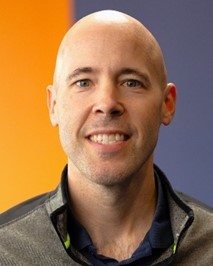
Staff Scientist, Kindeva Drug Delivery
Mr. Andy Janisch is currently a Staff Scientist at Kindeva Drug Delivery, where he is the lead product development scientist on a number of transdermal development projects. Andy has extensive experience in the development and scale up of transdermal products, including NCEs, 505b2 products, and several approved generics. Prior to Kindeva, he worked for 16 years at 3M Drug Delivery Systems, where many of the innovations in stick-to-skin products originated. As a result, Andy is an expert in many topics associated with skin adhesion ranging from adhesive polymer synthesis factors influencing drug solubility and adhesion to clinical adhesion studies. Andy has a B.S. degree in Chemistry from the University of Minnesota.

Device Expert, Manufacturing Science & Technology (MS&T), Sandoz
Dr. Achyut Khire is a seasoned pharmaceutical professional working across the spectrum of specialty chemicals, pharmaceutical engineering, novel drug delivery systems, and medical devices for over 15 years. Throughout his curriculum, Dr. Khire has filed six patents across geographies and published six papers. He has also been a member of the Royal Society of Medicine, the American Chemical Society, the Institute of Electrical and Electronics Engineers (IEEE), and the Engineering and Biomedical Sciences Society over the last few years. His core areas of research include novel drug delivery systems like transdermal patches, drug-devices combination products like dry powder inhalers, autoinjectors, pens, and medical devices, and interventional cardiology such as drug-eluting stents, intravascular lithotripsy, and implantable congenital heart defect devices.
Dr. Achyut Khire has completed his master’s and doctoral studies at the Institute of Chemical Technology, Mumbai. He completed his post-doc studies at the Indian Institute of Technology, Mumbai, while researching microneedle-based drug delivery systems. He is currently working in a medical device industry.
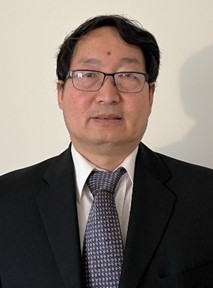
Director of Drug Product Development & Manufacturing, Prelude Therapeutics Inc.
Dr. Jinjiang Li is currently the director of drug product development & manufacturing at Prelude Therapeutics Inc. Dr. Li has more than 20 years of pharmaceutical and biopharmaceutical experience with specialties in oral drug delivery such as solid dispersions, parenteral dosage form development, and others and has worked with both small molecule and biologics modalities. Previously, he worked with Bristol-Myers Squibb and Boehringer Ingelheim Pharmaceuticals. Dr. Li publishes widely in a variety of pharmaceuticals and material science journals, with over 50 journal articles and book chapters. He has special interests in adhesion science from his graduate training. Dr. Li obtained his Ph.D. from McGill University in Physical Chemistry of Biopolymers prior to his Master’s degree in Analytical Chemistry from the University of Western Ontario.
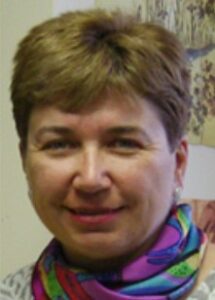
Senior Principal Scientist, USP
Dr. Margareth R. C. Marques is currently a Senior Principal Scientist at USP, where she manages documentary standards on dissolution, disintegration, drug release, ophthalmic products, and products applied to the skin. In addition, she manages the databases on reagents, chromatographic columns, and dissolution/disintegration tests. Dr. Marques is an editor and contributor to the Dissolution Technologies journal. She has a Bachelor’s degree and an M.Sc. in Pharmacy, both from the University of Sao Paulo, Brazil and a Ph.D. in Analytical Chemistry from the State University of Campinas, Brazil. Dr. Marques has more than 20 years of experience in Quality Control and Quality Assurance in active pharmaceutical ingredients and dosage forms.
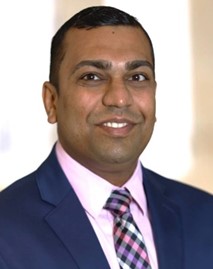
Director, Research & Development (R&D), Transdermal Research Pharm Laboratories, LLC (TRPL)
Dr. Nisarg Modi is the Director of R&D at Transdermal Research Pharm Laboratories, LLC in New York. He completed his Bachelor of Pharmacy from Sardar Patel University, India, and received his M.S. and Ph.D. from the Division of Pharmaceutical Science at Long Island University (LIU), Brooklyn campus. During his doctoral dissertation, he evaluated the impact of critical process parameters and critical material attributes on the rheological properties and permeability characteristics of semisolid products. Dr. Modi has spent over 15 years developing transdermal drug delivery system products with several successful First-in-Human (FIH) clinical trials. His expertise is in developing controlled-release products with innovative solutions. He has been an inventor for more than 30 patent applications and issued patents in the U.S. and EU within the transdermal drug delivery world. Several early-stage pharmaceutical companies have acquired his work and have generated several million-dollar revenues.
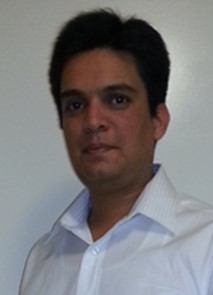
Senior Research Fellow/Research Leader, Frazer Institute, Faculty of Medicine, University of Queensland, Translational Research Institute, Vice-Chair, American Association of Pharmaceutical Sciences, Topical Transdermal Community (TTC)
Dr. Yousuf Mohammed is a research leader within Frazer Institute at the University of Queensland. He has been working within the field of cosmetic dermatology, sensory perceptions, skin delivery, novel technologies and devices, microneedles, and nanomaterials and has contributed significantly to the field with over 80 high impact publications, book chapters and over 40 conference presentations. He is presently the Vice-Chair of the American Association of Pharmaceutical Sciences, Topical Transdermal committee and an invited expert on transdermal products. In recent years, his work has developed the conceptual framework to describe the physicochemical and structural arrangement of matter in semisolid dosage forms, devised the technical methods for characterizing these attributes, and elucidated how the four-dimensional profiles of these attributes directly and predictably modulate the rate and extent of drug delivery. These breakthroughs have transformed multiple fields of medicine. His research has directly supported new paradigms for topical and transdermal drug development, with a corresponding modernization of regulatory standards. As an outcome of his work, it is now possible to predict and control the performance of semisolid products. In the United States and Europe alone, more than 80 regulatory guidances and guidelines now recommend the use of these new techniques to develop topical and transdermal products.
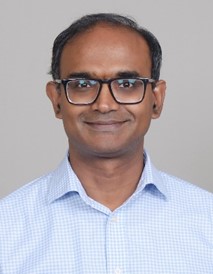
Lead, CMP Process and Applications, DuPont
Dr. Ravi Palaparthi is a seasoned technology professional and opinion leader helping organizations in various industry segments expedite product launches by minimizing learning cycles across the product life cycle journey. He currently leads the application research efforts in the semiconductor Chemical Mechanical Planarization (CMP) Technologies group within the DuPont organization.
His industry-specific experiences include semiconductor CMP and generic pharmaceuticals. The specialty materials key segments of his experience include making life easy for practitioners via digital transformation grounded on domain expertise, pharmaceutical process R&D and modeling, scale-up and tech transfer in multiple domains leveraging performance vs. (structure, property, process) interactions, materials and polymers, building bridges across groups to break silos, and mentoring and coaching technology teams and individuals.
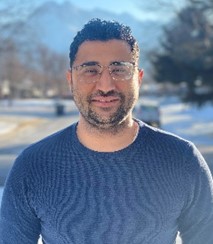
Associate Director in Product Development, Teva Pharmaceuticals
Mr. Harshil Parikh currently serves as an Associate Director in Product Development at TEVA Pharmaceuticals, where he holds a key position in shaping Teva’s dermal drug delivery portfolio. With a focus on transdermal systems, he brings a wealth of expertise to the intricate design and development processes, having led numerous projects from inception to successful market launch.
Throughout his career, Mr. Parikh has been deeply involved in the development of various transdermal systems, encompassing matrix and liquid reservoir patches of diverse wear times and sizes. His hands-on experience and innovative approach have been instrumental in advancing Teva’s capabilities in this specialized field.
Beyond his role in product development, Mr. Parikh is driven by a passion for overcoming challenges within the industry. He is particularly dedicated to enhancing understanding of the in vitro adhesion profile of adhesive blends and actively pursues the development of more reliable and predictive in vitro adhesion techniques. His goal is to ensure that the adhesion properties of products are effectively managed throughout their life cycle, thereby minimizing the need for extensive clinical trials when making changes to key components or manufacturing processes.
Mr. Parikh eagerly anticipates collaborating with other leaders in the field to tackle the challenge of establishing improved prediction tools for in vitro adhesion and provide feedback on the development.
He earned an undergraduate degree in Pharmacy from Gujarat University in 2011 and pursued a Master’s degree in Pharmaceutical Science from Long Island University, Brooklyn, NY.
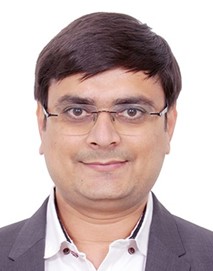
Co-Founder and Chief Technology Officer, Cutyx Research LLP, India
Dr. Dhaval Pethani is a Co-Founder and Chief Technology Officer at Cutyx Research LLP, India. Before establishing Cutyx, Dhaval held key leadership roles at renowned organizations such as Encube Ethicals, Zydus Life Sciences, and Alkem Laboratories, where he managed teams of proficient scientists dedicated to the development of transdermal patches, oral films, and topical products.
Dr. Dhaval is a highly accomplished Formulation Scientist with about 14 years of experience in research and development focused on transdermal systems, ODF and topical creams, ointments, gels, lotions, solutions, swabs for the regulated markets. His extensive experience with complex drug delivery systems, including transdermal patches, oral/sublingual films, and drug-device combination products, has consistently yielded successful outcomes across all phases of product development, from early-stage product development to commercialization. Dr. Dhaval possesses comprehensive knowledge of cGMP requirements for transdermal and topical manufacturing facilities and has successfully navigated inspections of various regulatory agencies. He is also skilled in process scale ups, technology transfer, new equipment design, and process validation.

Dr. Jackson Russo has expertise and experience related to topical and transdermal drug products, including research to determine product characteristics that may influence adhesion properties and irritation/sensitization of topical and transdermal delivery systems (TDS). In addition to his research projects, in his previous role as an ORISE Fellow within the Office of Generic Drugs, Dr. Russo conducted research to support the development of product-specific guidances (PSGs) related to topical and transdermal drug products. Dr. Russo can provide input regarding the study design for the project to develop more biorelevant in vitro methods for adhesion testing of TDS products. Dr. Russo received his B.S. degree in Biochemistry from Saint Louis University and his Ph.D. in Pharmaceutics from the University of Iowa.
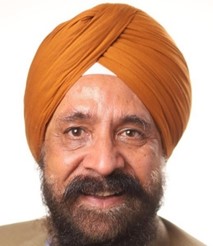
Professor and Section Leader, Pharmaceutics, College of Pharmacy, Florida A&M University (FAMU)
Dr. Mandip Sachdeva has been commended globally for his scientific research work and has contributed over four decades of dedicated service towards Pharmaceutical Education, Research, and Industry. A widely traveled scientist, he has delivered over 250 plenary, keynote, and invited talks in the U.S., Canada, India, Dubai, Brazil, Netherlands, Belgium, and numerous other international events and meetings. He has guided 28 Ph.Ds., 31 Post-Doctorates, and scores of postgraduate and undergraduate students. He has been Editor-in-Chief for CRC Critical Reviews in Therapeutic Drug Carrier Systems (current impact factor of 4.89) since 2009. He has, to his credit over 180 original publications, one edited book, and six book chapters, with a Google H-index of 55, i10-index of 247, and over 128,700 citations. Based on his published work, Stanford Univ., U.S., has recognized him among the Top 2% of scientists across the world in 2020, 2021, and 2022.
Mandip Singh Sachdeva currently works as a Professor and Section Leader of Pharmaceutics in the College of Pharmacy at Florida A&M University (FAMU) in Tallahassee, Florida, U.S. He received his M.Sc. and Ph.D. in Biopharmaceutics from Dalhousie University, Canada, in 1986 and 1989, respectively. Dr. Sachdeva moved on to SynPhar laboratories in Edmonton, Canada, working as a Group Leader in Drug Targeting from 1989-1993. Then, he moved into academia as an Assistant Professor of Pharmaceutics at Florida A&M University in 1993 and was promoted to Full Professor in 2002.
Dr. Sachdeva has won several honors and awards such as the Novapharm Award for 1989-1990 for Excellence in Biopharmaceutics, AAPS Fellow Award 2007, Davis Productivity Award from the State of Florida, 2009, 2011, and 2014, Research Excellence Award 2011 from FAMU, and Distinguished Researcher Award in 2017. He was also selected as a Fulbright Fellow in 2014-15 and again in 2022-23. He was also chosen as a GIAN Fellow in 2016 to perform outreach activities in India. He was bestowed with the Elizabeth Hurlock Beckman Award in 2020, awarded to mentors who have made a stellar difference in the community. He has been consistently funded for over 25 years by various agencies like NIH, NASA, the U.S. Department of Defense, and the U.S. National Science Foundation (NSF) while obtaining over 30 million USD in research funding for his institution. Furthermore, he has organized several symposia AAPS National meetings and has been a speaker and moderator for several other AAPS symposia. Dr. Sachdeva has senior membership in the National Academy of Inventors and has ten U.S. patents issued to his credit. He is an elected member of the Controlled Release Society (CRS), American Association of Pharmaceutical Scientists (AAPS), American Association of Cancer Research (AACR), Society of Toxicology, and Society of Investigative Dermatology. Further, he has been the chair of the Dermatopharmaceutics Focus Group at AAPS from 2014-16, the chair of the AAPS Nanotechnology community from 2022-2023, and chair of the AAPS Fellow Committee from 2022-2023. His research interests include cancer drug delivery (breast and lung cancer), 3D-printing of tumor cells and human cornea and probes for adhesive testing, topical and transdermal delivery, formulating and developing targeted nanoparticles, exosomes, and inhalation delivery of pharmaceuticals.

Director of Formulation Development, Teva Pharmaceuticals
Dr. Srinivasa (Sri) Sammeta is the Director of Formulation Development at Teva Pharmaceuticals, Salt Lake City, Utah. Sri has 12+ years of pharmaceutical industrial experience with a focus on different routes of administration like topical, transdermal, ophthalmic, vaginal, and rectal, covering different dosage forms like semisolids (creams, lotions, gels, foams), transdermal patches, ophthalmic solutions, suspensions, emulsions, vaginal rings, and suppositories. Sri started his career as a Senior Formulation Scientist and moved up the ladder to the Director of Formulation Development at Teva Pharmaceuticals. To his credit, Sri has several approved generic drug products, including multiple first-to-files, first-to-market, and first cycle approvals. He was also instrumental in setting up the IVPT facility at Teva for the in vitro bioequivalence studies.
Prior to joining the pharmaceutical industry, Sri completed his Ph.D. in Pharmaceutical Sciences with an emphasis on Topical/Transdermal Drug Delivery from the University of Mississippi under the guidance of Dr. S. Narasimha Murthy. Sri has authored more than 15 published scientific articles and multiple book chapters.
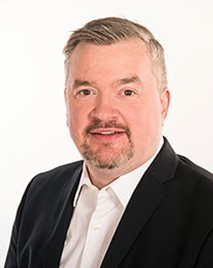
Head of Development and Executive Board Member, Luye Pharma AG, Germany
Dr. Björn Schurad studied pharmacy at the Free University of Berlin, from which he also received his Ph.D. Björn worked for Axxonis Pharma AG, Berlin, holding different positions, including Head of Production, Head of Quality Control, and Head of Pharmaceutical Development. In 2008, he joined Luye Pharma AG (initially founded as Novosis AG), where he is currently the Head of Development and since 2016 also an Executive Board Member. Björn also served as Qualified Person.
Björn has 20 years of experience in the development (formulation, analytics and process), manufacture and quality control of transdermal dosage forms.
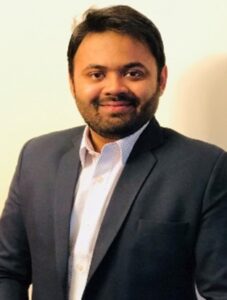
Senior Manager, Bioequivalence, Cosette Pharmaceuticals Inc.
Mr. Harshil Shah serves as a Senior Manager, Bioequivalence (BE) at Cosette Pharmaceuticals Inc.’s South Plainfield, NJ site. He is an R&D expert with over 12 years of scientific experience in the pharmaceutical industry. His vast experience includes the development of various complex generic dosage forms like semisolid, transdermal, otic, ophthalmic formulations, and 505(b)2 products where he has been instrumental in the development of analytical, formulation and bioequivalence strategies. During the tenure, Mr. Shah led the development of products resulting in first-to-file, first-to-market, and CGT designations. While developing the complex dosage forms Mr. Shah led technical discussions with the FDA, spanning pre-ANDA development meetings, post DRL/mid-cycle reviews, post CRL meetings, and various control correspondences. At Cosette, he is heading the Bioequivalence department which is responsible for working collaboratively with other site and departments across the U.S. and he also leads the bioequivalence activity with different CMO/CRO and Pharma company globally to innovate novel bioequivalence approaches for the development of complex generic pharmaceutical dosage forms.
He has worked for various Pharma companies like Amneal Pharmaceuticals, G&W Labs, and Solaris Pharma with various scientific positions. Overall, his experience spans from early product development, bioequivalence, quality compliance, product filing, and post approval support for pharmaceutical dosage forms. Harshil received his M.S. in Pharmaceutics specialized in Industrial Pharmacy from Long Island University, Brooklyn, NY.
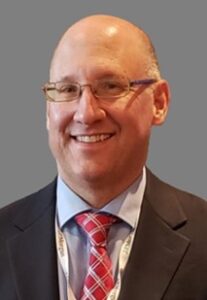
Chief Operating Officer, Nutriband, Inc., President, 4P Therapeutics subsidiary
Dr. Alan Smith serves as the Chief Operating Officer of Nutriband, Inc. (NASDAQ: NTRB) and President of 4P Therapeutics, a wholly owned subsidiary of Nutriband. He joined the company after Nutriband acquired 4P Therapeutics in 2018. Dr. Smith co-founded 4P Therapeutics in 2011 to develop drug-device and biologic-device combination products to meet the needs of patients, physicians, and payers, and was Vice President of Clinical, Regulatory, Quality and Operations at the time of the acquisition. Dr. Smith is co-inventor of the Company’s Aversa™ abuse deterrent transdermal system technology. Dr. Smith has over 20 years of experience in the research and development of transdermal drug/biologic delivery systems, diagnostics and medical devices for treatment and management of chronic pain, diabetes, and cardiovascular disease. Previously, he was with Altea Therapeutics, a venture capital funded company focused on novel transdermal drug and biologic delivery, most recently serving as Vice President, Product Development and Head of Clinical R&D, Regulatory Affairs, and Project Management. Prior to joining Altea Therapeutics, he led the development of transdermal glucose monitoring systems at SpectRx, Inc., a publicly traded noninvasive diagnostics company. Dr. Smith received his Ph.D. and M.S. degrees in Biomedical Engineering from Rutgers University and the University of Medicine and Dentistry of New Jersey. He currently serves on the Editorial Advisory Board of Expert Opinion on Drug Delivery.
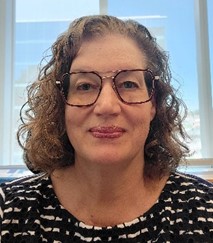
Professor, Department of Pharmaceutical Sciences, School of Pharmacy, University of Maryland, Baltimore
Dr. Audra Stinchcomb is a translational researcher and serial entrepreneur. Her breadth of research includes pharmaceutics, drug delivery, pharmacokinetics, complex drug product development, clinical trial optimization, regulatory science, and public-private partnership maximization. She has a B.S. in Pharmacy from the University of Colorado, a Ph.D. in Pharmaceutics and Drug Delivery from The University of Michigan, and a postdoc at the University of California, San Francisco. Dr. Stinchcomb is a fellow of the American Association of Pharmaceutical Scientists and of the American Institute for Medical and Biological Engineering.
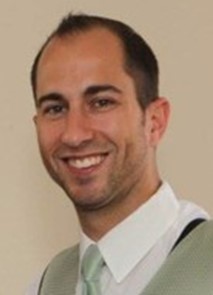
Lead Scientist, Mylan Technologies Division, Viatris, Inc.
Mr. Daniel Stockdale joined Viatris Inc, formerly Mylan Pharmaceuticals, in 2008 directly out of college and is currently a Lead Scientist in the Mylan Technologies division. Daniel has developed expertise in the physical testing of transdermal delivery systems and patches during his 16+ year career as a methods development analytical scientist. He has advanced through the ranks within Mylan Technologies from a bench chemist to a project leader and multi-discipline SME while always being active in testing samples. He earned his MBA from West Virginia University and his B.S. in Chemistry from Bethany College (WV).
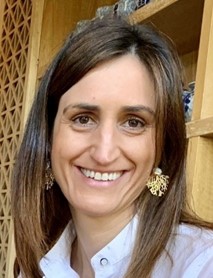
Assistant Professor, Pharmacy, University of Coimbra
Dr. Carla Vitorino is an Assistant Professor at the Faculty of Pharmacy, University of Coimbra in the Pharmaceutical Technology area and is an integrated researcher at the Coimbra Chemistry Centre, currently a part of the associate laboratory Institute of Molecular Sciences (IMS). Her research and development activities have been fundamentally directed towards three interrelated focal points:
(i) Scientific: The primary emphasis here pertains to the formulation of more effective strategies in conjunction with drug nanodelivery systems, tailored to address multipurpose requisites within unmet medical needs. Specifically, she has been working on the application of nanotechnology in drug permeation enhancement strategies for transdermal, oral, and drug delivery systems to brain targeting. Under the projects she has coordinated and co-coordinated, she has contributed to the development of advanced nanotechnological formulations, specifically tailored for brain targeting in the context of tumor treatment and diagnosis. Through the integration of in silico-in vitro-in vivo approaches, she has fostered the development of new treatment strategies for brain tumor patients and improved diagnosis, establishing the bridge between pharmaceutical research and clinical practice. Alternative routes to access brain (e.g., intranasal administration) for delivering drugs in a more efficient way have also been explored.
(ii) Industrial: This has been grounded on the systematic deployment of frameworks driven by a quality by design (QbD) philosophy, along with process analytical technology (PAT) tools. The central tenet lies in the application of structured approaches to the development of specific drug products, including but not limited to semisolids and injectables. Concomitantly, in-line process control and monitoring mechanisms are incorporated.
(iii) Regulatory: This has been directed to the development of analytical protocols, elaborated as surrogate modalities for clinical trials. These protocols, addressing in vitro methodologies, are designed to facilitate the bioequivalence assessment of generic topical drug products, thus holding relevance in regulatory contexts.

Chemistry Program Coordinator, ORA, ORS, OMPSLO, MPTSS, FDA
Dr. Anthony Wetherby is a Chemistry Program Coordinator within the FDA’s Office of Medical Products and Specialty Lab Operations (OMPSLO). He serves as a senior scientist and technical expert for multiple complex and cross-cutting program areas including Adverse Events, Health Fraud, Imports and Transdermal Patches. He is also a subject matter expert in the field of radionuclide chemistry. Prior to joining the FDA, he worked as a chemist at the Bureau of Land Management’s Federal Helium Reserve. Dr. Wetherby has over 20 years of experience in various fields of chemistry resulting in a diverse research portfolio with numerous publications. This work includes the development of rapid analytical techniques for laboratory and field-deployable systems related to radionuclide analysis, product adulteration, and microbiological contamination. Dr. Wetherby served as a cadre member in a pilot program aimed at addressing an agency key strategic priority of opioid detection. This program established a mobile laboratory located at the International Mail Facility (IMF) in Chicago, IL. Work during this program provided data-driven justification for installing a permanent satellite laboratory at this location and expansion of the program into additional IMFs throughout the country. He has a strong belief in the development of students and early career professionals which has been exemplified by his dedication to several mentorship and fellowship programs. Dr. Wetherby holds Bachelor of Science in Chemistry from Clarkson University, a Ph.D. in Synthetic Inorganic Chemistry from Oklahoma State University and completed a post doc at the University of Vermont.